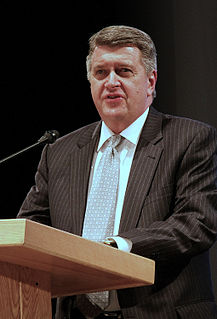A Quote by Francois de La Rochefoucauld
We should often blush at our noblest deeds if the world were to see all their underlying motives.
Related Quotes
You see so many beautiful things happening in this world, and you see so many things that make you want to cry and crawl under a rock. But there's an underlying feeling of magic and mystery in everything that I live for. I feel like all of my art is trying to get people to see that underlying, subtle energy that lives within everything that we see and what we don't see in this world.
In a true community we will not choose our companions, for our choices are so often limited by self-serving motives. Instead, our companions will be given to us by grace. Often they will be persons who will upset our settled view of self and world. In fact, we might define true community as the place where the person you least want to live with always lives
We must remember that much spiritual growth does not occur suddenly but rather through time and experience. The encouraging message of the gospel is that God does not often require us to perform sensational or extraordinary deeds but rather to try to do better today than we did yesterday. He is mindful of our desires, our determination, and our direction as well as of our deeds.


































